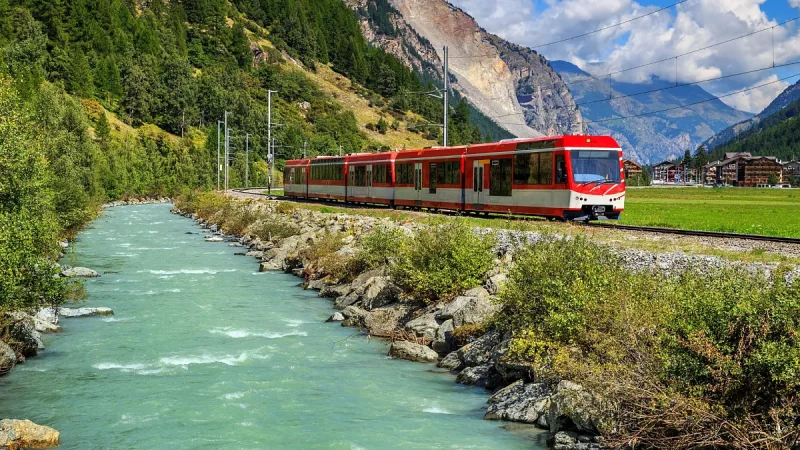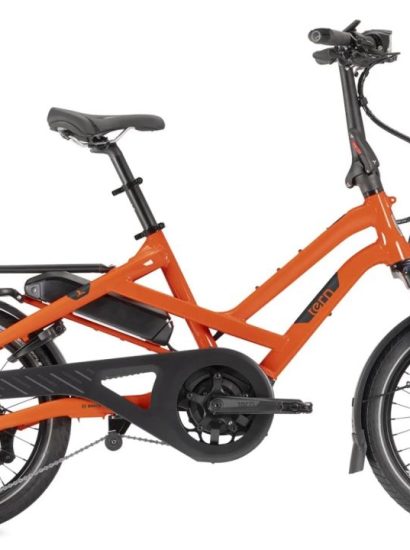Travelling by train is often considered one of the most scenic and comfortable ways to explore a country. However, many passengers are frequently taken aback by the high cost of train tickets. Whether you’re planning a cross-country journey or a short trip to a neighbouring city, the price of a ticket can sometimes feel exorbitant. So, why are train tickets so expensive? In this article, we will delve into 10 shocking reasons that contribute to the high price of train tickets, shedding light on the factors that affect rail travel costs.
Why Are Train Tickets So Expensive? Infrastructure Maintenance Costs
One of the primary reasons why train tickets are so expensive is the significant cost associated with maintaining and upgrading the rail infrastructure. Railroads require ongoing investments for track maintenance, station upkeep, and safety improvements. These costs are often passed on to the consumers in the form of higher ticket prices. Without sufficient funding for infrastructure, rail systems risk becoming outdated and unsafe, which could lead to even more costly repairs down the line.
Why Are Train Tickets So Expensive? Fuel Prices
The price of fuel can heavily impact the cost of train travel. Trains typically use diesel or electricity to operate, and fluctuations in fuel prices can lead to increased operational costs. When fuel prices rise, train operators often raise ticket prices to offset the higher costs. This connection between fuel prices and ticket prices is particularly evident during times of geopolitical instability or natural disasters that can disrupt fuel supplies.
Why Are Train Tickets So Expensive? Limited Competition
In many regions, train services are monopolised by a single company or a limited number of operators. This lack of competition means that consumers have fewer options for travel, which can lead to higher ticket prices. When competition is limited, operators may not feel the pressure to keep prices low, resulting in increased fares for passengers. In contrast, more competitive travel markets, such as budget airlines, often have lower prices due to their need to attract customers.
Why Are Train Tickets So Expensive? Government Subsidies and Regulations
Many governments subsidise train services to promote public transportation and reduce road congestion. While subsidies can help keep ticket prices lower, they can also create a complicated financial landscape. Operators may still need to charge high fares to maintain profitability, particularly in regions where subsidies are not sufficient to cover operating costs. Additionally, strict regulations regarding safety and service can add to operational costs, which may further inflate ticket prices.
Why Are Train Tickets So Expensive? Seasonal Demand
Seasonal fluctuations in demand also play a significant role in ticket pricing. During peak travel seasons—such as holidays and summer vacations—train operators often raise ticket prices due to increased demand. If you’re planning to travel during busy times, it’s crucial to book your tickets in advance to secure lower fares. Conversely, travelling during off-peak seasons can lead to more affordable ticket prices, as operators lower fares to attract customers during quieter times.
Why Are Train Tickets So Expensive? Amenities and Services
Many modern trains come equipped with a range of amenities, including Wi-Fi, dining options, and comfortable seating. While these services enhance the travel experience, they also contribute to higher ticket prices. The costs associated with providing and maintaining these amenities are factored into the overall price of a ticket. Travellers who prefer a more luxurious experience may find that the additional services lead to significantly higher fares compared to basic travel options.
Ticketing Policies and Fees
Ticketing policies can vary widely between operators, and some may charge additional fees that contribute to higher overall costs. For example, booking fees, seat selection fees, and cancellation fees can all add to the price of a ticket. Furthermore, the way tickets are priced can be complicated. Last-minute bookings often come with premium pricing, while advance purchases can offer significant savings. Understanding the various fees associated with ticket purchases can help travellers navigate the complexities of pricing and potentially save money.
Economic Factors
Economic conditions also play a role in ticket pricing. During times of economic uncertainty or recession, travellers may be more hesitant to spend money on travel, leading to decreased demand for train services. In response, operators may raise prices to maintain profitability. Conversely, during economic booms, increased disposable income can lead to higher demand for travel, allowing operators to charge more for tickets. This cyclical relationship between the economy and travel demand can significantly impact ticket prices.
Environmental and Sustainability Initiatives
As concerns over climate change grow, many train operators are investing in more sustainable technologies and practices. While these initiatives are essential for reducing the environmental impact of travel, they often come with substantial upfront costs. These expenses can lead to higher ticket prices as operators seek to recoup their investments. Additionally, as rail systems strive to meet stricter environmental regulations, the costs associated with compliance can further contribute to increased fares.
Global Events and Disruptions
Lastly, global events such as pandemics, natural disasters, or geopolitical tensions can lead to increased operational costs for train operators. For example, the COVID-19 pandemic caused many rail services to reduce their operations, leading to a loss of revenue and higher costs per passenger. As operators work to recover from such disruptions, they may raise ticket prices to cover the financial losses incurred during challenging times. This volatility can result in unpredictable fare increases for travellers.
Conclusion
In conclusion, the question of “why are train tickets so expensive” is influenced by various interconnected factors, including infrastructure maintenance, fuel prices, and the effects of seasonal demand. Understanding these elements can empower travellers to make more informed decisions and potentially save money when booking their journeys. While the costs may seem high, train travel offers a unique experience that combines comfort, scenic views, and the convenience of direct access to city centres. By recognizing the complexities behind ticket pricing, passengers can appreciate the value of their investment and explore the many destinations that train travel has to offer.
FAQs
1. Why are train tickets so expensive compared to buses or planes?
Train tickets are often more expensive due to high infrastructure maintenance costs, limited competition, and the amenities provided on board.
2. What factors contribute to why are train tickets so expensive during peak seasons?
During peak seasons, demand increases significantly, prompting train operators to raise prices to manage the influx of passengers and maximise revenue.
3. Are there hidden fees that explain why are train tickets so expensive?
Yes, many train operators charge additional fees for things like booking, seat selection, and cancellation, which can inflate the overall ticket price.
4. How can I find cheaper tickets if I am concerned about why train tickets are so expensive?
Booking in advance, using discount cards, and travelling during off-peak times are effective strategies for finding lower train ticket prices.
5. Can global events affect why are train tickets so expensive?
Absolutely. Global events, such as pandemics or economic crises, can lead to increased operational costs, prompting train operators to raise ticket prices to cover losses.
Also read: Christmas Markets Amsterdam 2023: 10 Must-Visit Locations for Festive Fun!









